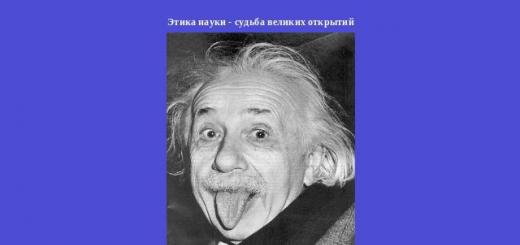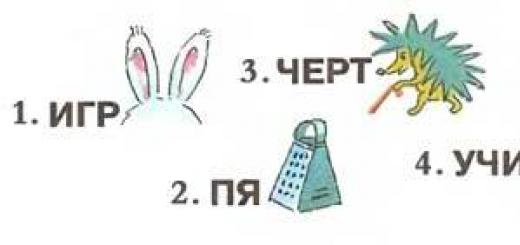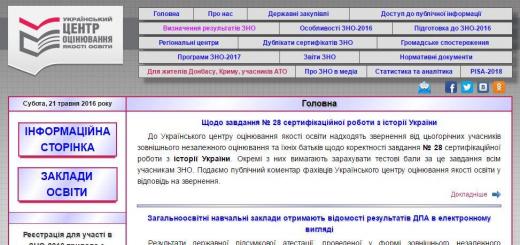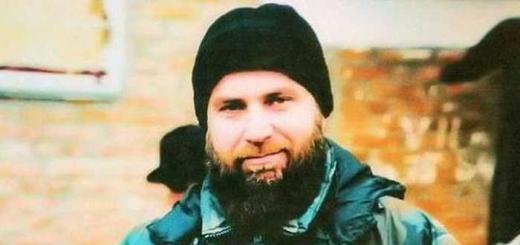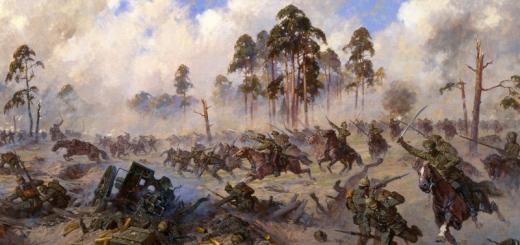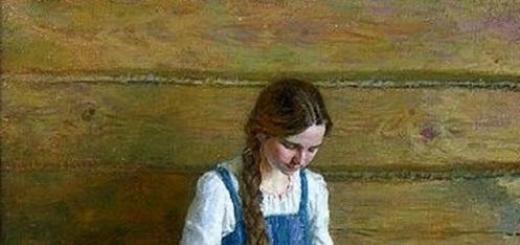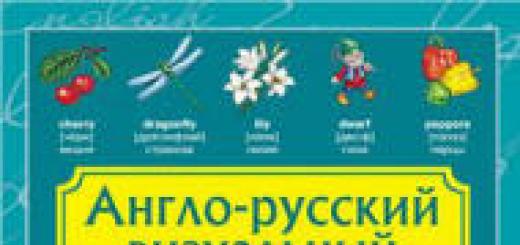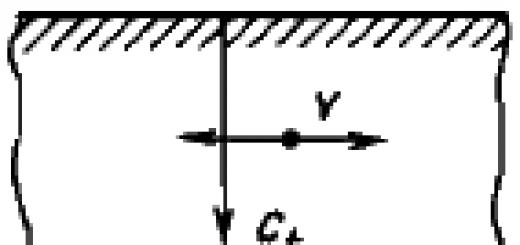Rating
TOP 200 best schools in Russia: 2015 - 11th place, 2016 - 16th place, 2017 - 26th place, 2018 - 16th place.
Class Specialization
1514 is a multidisciplinary school. Up to the 5th grade, training is carried out according to the basic program. In grades 5-7, they add extensive study of literature, mathematics, two foreign languages, English and Latin, and natural science. Students are given the opportunity to choose a major - mathematics or humanities - only after completing the 7th grade.
After 9th grade there is a clear division of training into specializations.
- Mathematical - in-depth study of programming and mathematics, advanced - physics.
- Natural science. It has two profiles: engineering and technology (with extensive study of physics, chemistry, mathematics, computer science) and biological and chemical.
- Humanities - in-depth study of two foreign languages, history, MHC and literature.
At the end of each year, students take transfer exams. 


Rules for admission to gymnasium 1514
Admission to the 5th and 8th grades of gymnasium (school) 1514 is on a competitive basis. The winners of the mathematical Olympiads, which are held annually at the school, are given preferential treatment when enrolling.
To enter the 5th grade of school 1514, you must pass a written exam in the Russian language (dictation and creative assignment), mathematics and an oral interview in a foreign language. Entrance tests take place in May-June. The exact exam schedule is published on the official website of the gymnasium.
Exams for the 8th profile classes require serious preparation. Students need to pass:
- in the engineering and technology class - geometry and algebra in writing, solve programming problems;
- in the math class - geometry orally, algebra in writing and complete programming assignments;
- in the science class - written mathematics and a comprehensive exam, which includes testing and an interview in physics, chemistry and biology.
Founding history
Gymnasium 1514 was founded in 1958. Then it was called school 52. Two years later, education there became specialized and mathematical. The school began to cooperate with the Computing Center of Moscow State University and the USSR Academy of Sciences. On their basis, in-depth study of mathematics and programming took place. Teachers of these institutions created 52 original programs for school students.
Another specialized area for many years was music. Children were taught music reading, singing, and playing musical instruments.
In 1985, the first computer class appeared at the school. At the same time, a second building was opened, located at 10 Krupskaya Street.
In 1993, the school was given the status of 1514 gymnasium. In addition to the two main profiles of training, another direction is being added - natural science. A math camp for schoolchildren began operating in 1996. It is held annually during the winter holidays. Starting from the same year, a new direction was opened - cultural studies.
In the 2000s, the gymnasium continues the traditions of 52 schools. An important event in recent years was the opening on August 20, 2015 of a new building for students in grades 5-11.
Location
Gymnasium 1514 in Moscow is located in the South-Western Administrative District, in the Lomonosovsky district, 1.3 km (15 minutes walk) from the University metro station.
Address: Moscow, N. Krupskaya street, building 12.
Directions:
metro station "University", then trol. 34, 28, bus 1 to the stop. “Krupskaya Street” (2nd stop)
or metro station “Novye Cheryomushki”, then bus 1, 113 to the stop. "Krupskaya Street".
In 2017, a new gymnasium building was opened at the address: Moscow, st. Novatorov, 28, which will accommodate students in grades 5-7.
Website: gym1514uz.mskobr.ru
Satellite site: 1514.ru
Are you thinking about an educational institution for your child? Pay your attention to school 1514. Reviews about it and its high place in the ranking among general education schools indicate the high-quality delivery of knowledge and the interest of the teaching staff in their students. From elementary school to high school, children are under the careful supervision of teachers who do not hesitate to involve their parents in helping them, thanks to this, graduates of the gymnasium can count on admission to the best universities in the country.
What is the educational institution famous for?
Today, school 1514 stands out among the best in the humanities. Reviews from graduates and parents about it are mostly positive; they are satisfied with the quality of education here. Every year, the institution ranks among the top five among all general education institutions; this can be achieved through constant cooperation with the best teachers in the city. The key difference between the school is that, in addition to the humanitarian profile, there is a special department where the history of world culture is studied quite widely.
Teachers are quite strict about their subjects, which is why they require serious preparation from their students, which allows them to achieve high scores on the Unified State Exam. The best students constantly take part in scientific conferences dedicated to the problems of the humanities, where they have the opportunity to communicate with famous scientists, graduate students, students of the country's leading universities - Moscow State University, Russian State University for the Humanities, etc.
The very inconvenient location of gymnasium 1514 (Moscow, Novatorov, 22) is offset by its advantages. In 2002, she opened her own on-site humanitarian camp, where children from different parts of the capital take part every year. A huge number of unique disciplines to choose from, rich educational programs, special courses, hikes and trips with teachers - all of these are serious advantages of the educational institution over others, which is why it is so popular.
How did the gymnasium appear?
School 1514 Moscow, reviews of which are now circulating throughout the capital, appeared in 1958, and then had number 52. A year later, A. N. Sklyankin, Honored Teacher of the Soviet Union, became its director, who made a huge amount of effort to ensure that the school received a mathematical profile and became famous throughout the city. Since 1960, five ninth grades were launched annually, where students from all over Moscow entered. Mathematics, physics, and programming were actively taught; specialists from the USSR Academy of Sciences and the computer center at Moscow State University were invited to teach.
In 1963, a music profile appeared here, where they began to train specialists who would later go to work in preschool institutions. Teachers provided training in solfeggio, piano, accordion, violin, music literature and other disciplines.
In the 1970s, the school changed its location and moved to house 12 on Krupskaya Street. In 1979, the higher authorities decided that the educational institution should stop collaborating with the computer center, which seriously affected the image of the school, and around the same time the music profiles disappeared.
In 1985, the school opened its own computer class, and three years later a humanities program was opened. In the 1990s, the educational institution had the status of a multidisciplinary gymnasium, where training was conducted in the humanities and mathematics. In 1993, it received a new name - gymnasium No. 1514, with which it exists to this day. In the late 1990s, the school began to be considered a laboratory gymnasium, where mathematics and humanities camps are held annually.
In the 2000s, a significant gift awaited the Moscow gymnasium 1514 - a new building on Novatorov, which students and teachers immediately liked. Gradually, all additional premises moved to nearby buildings, which made it possible to form an entire student campus. Around the same time, the gymnasium had its own departments, in which students write their own works for a portfolio, which in the future can help them in
How is the educational institution doing today?
All No. 52 live to this day in school 1514. Reviews about it continue to spread throughout Moscow, forcing parents to fight for places for their children. Great attention is paid to project and research activities, students constantly speak at scientific and practical conferences of Russian and international scale.
Every year, a city conference on philology is held here; since 2003, two experimental projects have also been opened here, aimed at integrating cultural studies and new educational models into the learning process. High school students annually go on tours in the European part of Russia, and educational and study trips outside the state have also become quite frequent. The gymnasium even has its own theater, in which new performances are staged annually by teachers and students.

Almost 70% of graduates enter Moscow State University, which also increases interest in school 1514 on Innovators. Reviews of a strong teaching staff who are interested in the success of their students only contribute to the increase in students. In 2011, the gymnasium entered the top 5 best educational institutions based on the results of various Olympiads and the Unified State Exam. A year later, the success was repeated, but later the school was ousted by stronger competitors. As of 2018, the gymnasium is among the top 15 organizations involved in educating the younger generation.
The academic potential of the school is also enormous; meetings are constantly held here with outstanding Russian and foreign scientists who willingly give lectures to high school students. The gymnasium actively cooperates with a large number of other educational institutions, some of which are located in Tver, St. Petersburg, Kyiv, and Sevastopol. Teachers and students actively exchange experiences with each other, which benefits science as a whole.
Who is teaching?
The presence of specialized departments that teach certain disciplines is a distinctive feature of school 1514 on Innovators. Reviews about this method of doing work are very mixed. The teachers themselves believe that this helps future students adapt to the university education system, while some parents say that such an approach is unacceptable for primary and secondary levels. The gymnasium has departments of mathematics, literature, foreign languages, programming, valeology, etc.
The head of the mathematics department is L. O. Bychkova, who has graduated more than one generation of students, most of whom successfully entered universities. It was at this oldest department in the school that the principle of unified teaching was first introduced, when all teachers work using only one method. Over time, the benefits of using this approach became obvious - now in the event of illness or absence of a teacher, he can be replaced, and the quality of teaching will not suffer. Among the teachers of the department there are many representatives of the gymnasium administration - E. V. Berlova, A. F. Fedorov, T. M. Gorelova, etc., who have the opportunity to work with students directly and, if necessary, correct the work of their colleagues.
A special place in the life of the school is occupied by the Department of Literature, where today leading teachers of the capital work - M. M. Belfer, E. N. Klepanova, G. B. Ryazanova and others. It is through them that a large number of activities are carried out between school institutions aimed at developing the linguistic skills of students. The department employs teachers in the Russian language, literature, MHC, music, fine arts, and there is also one literature teacher - E. A. Magich, who tells the children about the Russian language in the context of the theory of general linguistics.
The most popular is the department of theory and history of world culture, where teachers work not only from school 1514, but also teachers from the capital’s universities. Schoolchildren happily go to the lessons of foreign language teachers G. I. Samsonova, A. A. Antoshkina, A. D. Leonov, E. S. Tortunova, Yu. A. Efremova, where they can receive bonus materials in their specialization - linguistics.
Is there a preparatory program?
Since the primary education program is quite complex, you can use the additional “Step to School” program. Enrollment starts from the age of 5.5; registration for courses usually begins in April-May, in order to form group lists by September, adapt the program and begin training in the fall. If you want your child to enroll in school 1514, reviews of the elementary school will help you make your final choice.
To enroll in the group, you will need to contact the office of the institution and provide a number of documents there: SNILS and the child’s birth certificate (copies can be used), a photocopy of the parent’s passport, a completed application form, as well as an agreement filled out in duplicate.

For quite a long time, there was an opinion that it would not be possible to enter a gymnasium without passing the “step” to school 1514. In reviews of the program, parents often noted this information, but over time this disappeared. The administration of the educational institution does not hide the fact that priority for admission is given to children living in nearby houses that are assigned to it. However, selection is carried out on a competitive basis, so absolutely everyone has a chance of admission.
When entering preparatory courses, children not only receive information on specialized and general education disciplines, they are also supervised by experienced psychologists. The task of the latter is to provide parents with a number of recommendations, with the help of which the child will be able to quickly and painlessly adapt to the new team and the educational process as a whole.
How to enter primary school?
If you still decide to send your child to school 1514, reviews of the elementary school are the first thing you should read. For the most part, parents are satisfied with the individual approach that is used in relation to each child. Training is carried out in separate buildings located at the following addresses: Akademika Chelomeya, 6A; Krupskaya, 10; There are 22a and 28 innovators, so there is enough space for children.
Admission to first grade is carried out in three stages. The first begins on December 1 and lasts exactly two weeks, during which time parents must write an application for transfer from kindergarten to school. The document will need to indicate information about which program the child will be enrolled in (“1-4” or “1-3”), as well as give your written consent to have your offspring diagnosed by teachers and professional psychologists.
On December 15, the second stage of enrollment in gymnasium 1514 begins, reviews of the elementary school of which at one time drove parents so crazy that they began to buy housing in the houses assigned to it. At the same time, fathers and mothers are invited to fill out an application for admission electronically on the website of the educational institution or on the portal of the Moscow Department of Education (section “Documents”). In addition to this document, you will need to attach copies of the mother or father’s passport, the child’s birth certificate, as well as a certificate certifying the baby’s registration in the assigned area.

The third stage begins on July 1, when the school administration begins to consider children who do not live in their assigned houses. In this case, admission is carried out only if there are free places; if there are any left, then priority is given to preferential categories of children: those from large families; children who have the right to an extraordinary place in accordance with the capital’s legislation; as well as those whose brothers and sisters are already studying at this educational institution.
Despite the fact that parents and children have to spend a lot of effort to enter gymnasium 1514 (Moscow), reviews of the elementary school force them to fight for vacant places. It is in this school that each child receives a large amount of attention to his person, which allows him to quickly reveal his educational potential, as well as grow into a healthy and strong personality, capable of making our world a better place.
What do parents like most about this school?
There is a certain set of qualities that force fathers and mothers to choose school 1514 Moscow. In reviews, parents often talk about the individual approach to children and the high quality of education. The technique in which a teacher can be replaced by another at any time without interruption in the curriculum also appeals to the older generation. Parents are satisfied with the strict approach of teachers to the learning process; they consider it quite fair, taking into account how much the modern generation of children does not want to acquire new knowledge.

Another advantage of the educational institution is free education, the only thing is that parents still have to pay for excursions and trips. However, the amounts are not too large, so there are no difficulties with this. According to fathers and mothers, the gymnasium is one of the best general educational institutions where they engage in in-depth study of the humanities, which only benefits children.
They also consider the high competition for a place at school 1514 in Moscow to be justified. Reviews about this selection system are mostly positive. Parents believe that through its use it is possible to weed out those students who do not need such training and make room for more talented children. Also, as an advantage of the educational institution, they note the presence of a large number of electives and a rich vacation program, when students go on excursions rather than sit at home at their computers.
Are there any reasons for dissatisfaction?
Of course, there are also those who are dissatisfied with the order established at school 1514. Feedback from parents indicates that excessive workload does not always benefit the children. In some cases, children do not even have time to complete their current homework and sometimes ask teachers for a deferment. The school administration agrees with the heavy workload, but reducing it is quite difficult, since in this case the children will not receive the knowledge necessary to pass the final certification.
Some parents note that there is a certain rivalry between students of different profiles, which is not always smoothed over by teachers. Also, mothers and fathers are unhappy with the competition they have to face to get a place in the gymnasium. The reason for this is the huge number of people who want to study at this institution, since the quality of the education received here is much higher than average.
A fairly large amount of negativity was associated with the old buildings of the educational institution. Today the current address of the school is 1514 - Novatorov, 22a. Reviews about the new building are positive, however, there are also shortcomings in the form of plumbing that has not been replaced everywhere, as well as a few premises that require repairs. However, the management of the gymnasium is well aware of all the existing problems and is trying to solve them as much as possible, while trying not to exact taxes from parents, but to make do with the allocated budget.
Who is the gymnasium proud of?
In every educational institution there are students who have achieved serious success in adult life. School 1514 is no exception. There are few graduates here who have become famous personalities, but each of them has had a huge impact on modern science. One of them, Boris Sergeevich Kashin, today is an academician of the Russian Academy of Sciences and a Doctor of Physical and Mathematical Sciences. It was he who created the solution to the problem of functioning in the space of orthonormal systems. His research helped find the answer to Knaster's problem, which mathematicians had been struggling with for almost half a century. For his scientific activities, Boris Sergeevich was awarded the medal “For Services to the Fatherland”, II degree, and also has a number of awards and prizes.

The name of Andrei Linde is known today to all those who have at least once come into contact with theoretical physics. He received his very first education at the capital’s gymnasium 1514; it was not difficult for a graduate of a specialized school to enter the physics department of Moscow State University. In the early 1980s, he created a unique inflationary model of the Universe, which allows us to assume its further development. In the 1990s, Andrei Dmitrievich emigrated to the USA, where he became a member of the National Academy of Sciences, where he lives to this day. In the early 2000s, Linde won a large number of prizes and awards: the Dirac Medal, the Kavli Prize, the Robinson Prize from Newcastle University, etc.
Despite the fact that the school has only two famous alumni, their number may increase at any time. Almost all high school students, after graduating from high school, enter state-funded places at leading universities in Moscow - Moscow State University, Russian State University for the Humanities, MGIMO, where they receive the right to conduct scientific activities and make discoveries.
Where can you go after finishing school?
Since the humanitarian profile is the main one for Moscow gymnasium 1514, graduates of a general education institution can continue their studies in this direction by entering a university. First of all, you can consider the Russian State University for the Humanities, where students have a choice of more than 150 specialties of the corresponding profile, and there are quite a lot of budget places, so the chances of saving and getting a higher education are quite high. The average passing score here is 70, so to get admitted you will have to try hard on the Unified State Exam.
The second most popular is with 140 specialties, the average score required for admission here is 62, so many have a very good chance of admission. Next comes Moscow State University, where graduates of mathematics majors most often enroll; the average score there is 75, but applicants bypass this obstacle without any difficulties.
The State Institute of the Russian Language is the ultimate dream for many graduates of School 1514. Feedback received from those admitted there motivates many to intensively prepare for exams in the humanities cycle. It is worth noting that gymnasium students do not use the services of tutors; the only thing they resort to is going to various electives, where they can get additional information on a subject of interest absolutely free of charge, and then apply it in action.
How can I contact school representatives?
A fairly large number of students are transferred to this gymnasium from other educational institutions. If you also want to transfer your child to school 1514 on Novatorov Street, reviews of the quality education in which have already spread throughout the capital, be prepared to go through a number of tests. Parents will be required to provide the child's personal file, report card with his grades, and a portfolio (if any). The institution’s teachers recommend collecting awards, crafts and certificates for your child from kindergarten onwards, so that by the end of school they can form a large and beautiful portfolio that can have a positive impact on admission to the university.

It is recommended to arrive at the gymnasium in advance, talk with children, parents and teachers in order to get a general idea of the educational institution and decide whether to send your child there. Also, before enrolling, your child will have to undergo an interview and testing with subject teachers and psychologists, so it’s worth preparing him mentally for this.
To get to gymnasium 1514, you will need to get to the Universitet metro station, and then transfer to trolleybuses routes No. 28 and No. 34, with their help you can get to the stop “Ul. Krupskaya." You can use an alternative option - take buses No. 1 and No. 113 from the Novye Cheryomushki metro station.
Here on the next street we have a very fashionable school 1514. It is in the TOP 10, the children of various cool people studied there (the children of Igor Ashmanov, for example). And of course the public flocks there as a result of such advertising. This is what the deputy of our municipal district Dmitry Martynenko writes:
“For enrollment in the first grade for the next school year, only one building No. 8, building 3 on Krupskaya Street was attached to the gymnasium. There are many who want to get into this gymnasium from all over Moscow, and they began to buy registration in the mentioned house. They covered the pillars next to the house, they write on social networks and seriously offer a million rubles for registering a child at the place of residence in this house. They told me that many preschoolers have already registered this way, and there are almost 30 people in one of the apartments.”
It seems to me that the problem should be solved not through catching those who are fictitiously registered (as suggested in the deputy’s blog), but through educating parents who have been fooled by advertising. There are some things that you still need to understand about school.
(1) There is no proven connection between school show-off (place in rankings) and the education of your particular child. For example, the same TOP 10 does not consist of the best schools, but of mathematics schools. It's easy to see why: if you get more studious nerds in one place, they'll get more good grades than other schools. So what? This can be achieved simply by selecting children for admission rather than by education. I was at a parent meeting in 1514. I didn’t hear anything special about their education. But I heard a lot of show-offs. I recently spoke with the father of a child who entered 1st grade there. He confirmed my suspicions: the show-offs are greatly exaggerated. What exactly does this mean:
(2) Primary education in all Moscow (state) schools is approximately the same: this is simply a requirement of the general education system. Therefore, the only thing a parent can really do to improve their child’s life in the beginning is choose a teacher. But our schools do not provide such a “service”. However, if you really want to, then in a school without show-offs you have a much better chance of doing it. When there is no excitement and competition, the classes are not yet full, you can calmly come and meet the teachers... In short, there is room for maneuver.
(3) High school can already choose by specialization. In principle, this choice is made by tests, entrance exams or olympiads, and not by registration (and in the case of 1514 there is such an option). But specialization is not only “mathematics or a foreign language.” Even at the beginning, my eldest became very interested in several clubs that do not exist in schools. At the same time, at the meeting in 1514 I was immediately told that they do not encourage “external” circles. Do they have their own radio electronics club? Do you have your own large chemical laboratory? What about the aikido section? Or will my child instead only be offered an extra 10 hours of math per week, including Saturdays? On this question, I came to a paradoxical conclusion: so as not to interfere with extracurricular activities.
(4) There is also an idea that when choosing a good school, we choose the environment. Well, to hell with the subjects, but there is the “right atmosphere” and the “right people”, including classmates and their parents. To this, comrades, I will tell you quite rudely: if you really want to change the environment for your child, take him. As for life in our crazy metropolis, I don’t believe in creating a decent micro-elite with people who are registered 30 people in one apartment, like Tajik guest workers.
It was difficult to enter school 1514 in 1st grade; some of the mothers said that the child was prepared by a teacher from the same school, beginning. classes. Hard labor began in the 1st grade - I helped prepare homework, in the 3rd grade I looked for additional help. literature, I read it myself, retold it to the child, although the child was not stupid, even with advanced development, “Alice in Wonderland” was read at the age of 5. The worst thing was the situation in the class - about a third were “thieves”, they behaved as they wanted, they behaved like they wanted, they spread rot on the other children and it was impossible to stop it. As I realized later, complaints to the class teacher remained in vain, because the parents of these children helped the school, including financially, but not into the teacher’s pocket, but bought geographies. Cards, provided various services, etc... After passing a powerful competition, the child moved to 5th grade, then it began... . The workload was killer, every teacher (geography, history, ...0) believed that if he did not put in at least part of the university course, he would make a mistake. The atmosphere of children's relationships has become simply monstrous: fierce competition, bullying of the weaker in all respects: starting with their performance in lessons and continuing with their performance in physical education - whoever runs slower is the “enemy of the people”, you can mock him. Teachers “do not see” anything, the main thing is grades in their subject. Even in class they don’t stop the bullying; they pretend that nothing is happening. Apparently because the ringleaders are “thieves’ children” who, although they get bad grades, can do anything. 7-8 excellent students were not involved in anything, they taught themselves. and the middle peasants united into different groups and persecuted first one or the other. They could slam their heads against the door, push their backpack along the entire school corridor, and say nasty things. At the same time, there were 4 psychologists at the school. It was difficult to get into the Olympics because “all ranking places” were distributed.Mothers from other classes said that they go to consultations with psychologists and psychoneurologists at the Institute of Pediatrics and encounter the same mothers and children from other lyceums. Not only in 1514 there is such an atmosphere. Children are going through all this hard, the loads are enormous, they often get sick from both the stress and the heavy atmosphere. The good is also important: teachers. Most of them are very qualified. I have never seen such a department of Russian language and literature anywhere else, the literature programs are excellent, the teachers support these programs very well. Mathematics are very good, cultural programs are good. If a child has an iron will, a strong psyche and elephant skin, he will receive a good education. I took mine about halfway through my training, after a terrible incident. Unfortunately, much later than it should have been. Psychological traumas most likely remained for life. We went to another very advanced lyceum, the base for Moscow State University, and took a deep breath - normal children, normal atmosphere, thinking, no less qualified teachers. The workload was also very heavy, we had to study a lot and intensely, we received an excellent basic school education, in fact, what we were striving for. And it turned out that you can have all this and still exist in a normal human atmosphere, without bullying. When there were problems in life later, we laughed bitterly and said that if a person had already passed the 1514 gymnasium, then he would survive in life. My child graduated from the Faculty of Economics at the Higher School of Economics, his diploma was published in the proceedings of the Higher School of Economics, that is, everything is fine. But when I was invited to some anniversary meeting in 1514 and the child went there at my request, I regretted three times that I had not thought in advance. Then there was a month of depression from which it was very difficult to get out of it. I thought that since the child was successful, he would come and this would be his victory over those who oppressed him, but it turned out that the memories of the humiliations he experienced were so undying, so bitter that no words could be said, that you proved to everyone who in the end it turned out to be wealthy, they don’t work, but “the spine was broken at a tender age,” and you can never get rid of this, these complexes. So think about what is more important for your child: feeling like a full-fledged, free, confident person, or education in 1514. Lydia.
Moscow gymnasium with more than half a century of history. Opened in 1958 (at that time – school No. 52). Located near the Universitet metro station (Krupskaya St., 12).
The official website of the gymnasium on the portal of the Moscow Department of Education: gym1514uz.mskobr.ru
Admission to 5th grade
In fifth grade, students will be recruited “from the street,” as in previous years, based on the results of test exams and Olympiads.
Future 5th graders will have to take Russian (dictation + creative assignment), mathematics (written exam) and English. Exams will be held in May-June.
Apparently, as before, preference will be given to students who can boast of good results in olympiads, math tournaments and other intellectual events.
Admission to high school
You can enroll if there are free places - based on the results of an interview and/or exams. They are also held at the end of the school year.
For parents - those who remember the 70s
On the history page of the gymnasium’s website, I noticed an interesting fact.
In the early 70s, public education authorities banned the school newspaper “Graduate.... of the year". With the wording " For chronic failure by the school to fulfill the plan for admission to vocational school" The school newspaper was published once a year, on September 1, and talked about the admission of the latest graduates to universities. The result was undisguised agitation in favor of higher education, which sharply contradicted the policies of the party and government of that time...
Examples of test and examination tasks in gymnasium 1514
How can I help prepare your child for entry into 5th grade?
4th grade. Mini-group classes (led by me).
Registration begins in March, when children are still in 3rd grade. Testing and group formation ends in May. Registration is currently closed, groups are fully staffed.
4th grade. Online simulators, Olympiads, entrance exams (website olimpiadaFB.ru).
During the school year, your child receives access to online trainers that my students use to train. He will be able to participate in weekly Olympiads and write weekly test versions of previous years' entrance exams. For each task, answers, solutions and explanations are available after completion. Registration and payment for access are required.
3rd grade. Circle in New Cheryomushki (led by my colleague).
Registration begins in April, when children are in 2nd grade. Trial classes and group formation ends in May. Registration is currently closed, classes are fully staffed.
3rd grade. Paired or individual lessons at your home (taught by my junior teachers).
2nd grade. Paired or individual lessons at your home (taught by my junior teachers).
Classes according to my program, according to my materials, under my supervision are conducted by male and female students of the faculties of mathematics and computer science (MSU, Physics and Technology, MSTU, HSE, etc.), who are familiar with Olympiad mathematics and have skills in working with younger students. . Learn more about classes.
